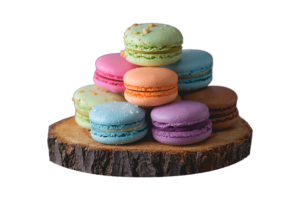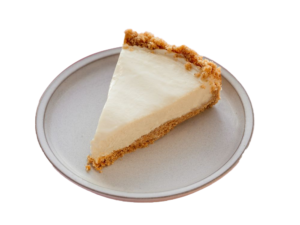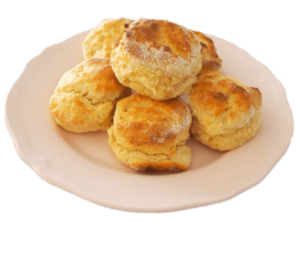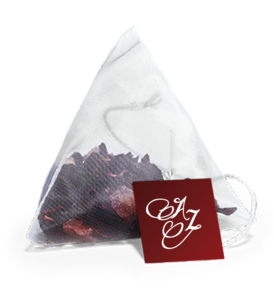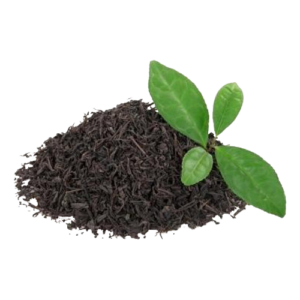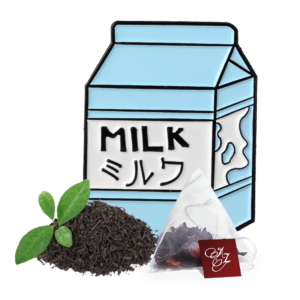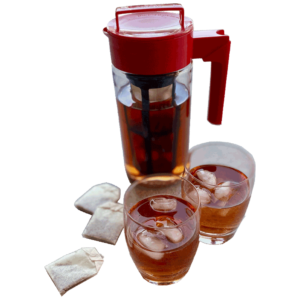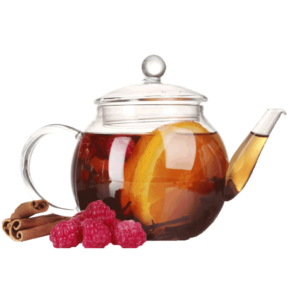
- Shazni
- junio 16, 2023
- 5:48 pm
- No Comments
Tea & Health
Antioxidant effect
Black tea is classified as a fermented tea due to its manufacturing process, and there is a misconception that tea catechins are oxidized and lose their antioxidant properties. It is true that black tea has a weak ability to prevent oxidation of oils and other substances in the outside world, but on the other hand, there is a paper that says that the theaflavins in black tea are stronger than unoxidized catechins when measuring the antioxidant properties of active oxygen in the body, although there are differences depending on the measurement method. Thearubigins extracted from black tea at the level consumed in Japan also have the same potency as theaflavins. Recent medical research has shown that while the function of oxygen through breathing is the basis of energy, at the same time, the unavoidable traces of active oxygen that are produced cause deterioration of cell tissue and peroxidation of lipids in the blood.
At this time, enzymes that eliminate active oxygen act as a biological defense mechanism, but the production of excessive active oxygen must be countered by antioxidant substances in food and drink. This is why the intake of antioxidant vitamins such as vitamins A, C, and E, as well as fruits and green and yellow vegetables, is recommended. Green tea catechins and black tea polyphenols are also important antioxidant substances in the body for us. Drinking tea can eliminate active oxygen and free radicals in the body, and is therefore expected to be effective in preventing lifestyle-related diseases caused by them (such as cancer, high blood pressure, stroke, heart disease, and diabetes, which were previously known as adult diseases), inhibiting aging (for example, preventing the appearance of age spots and preventing the fragility of body tissues such as blood vessels), and preventing the production of melanin pigment, among other beauty benefits. Many nutritional supplement tablets containing substances with antioxidant properties have already been released in the United States, and the word “antioxidant” has quickly become associated with the image of being good for health, and the black tea industry is also focusing its promotion efforts on the antioxidant properties of black tea flavonoids.
Cancer prevention effect
There are many different types of cancer depending on the location and condition, and there are fewer individual studies on how effective black tea polyphenols are than on green tea catechins. Examples include comparing green tea catechins with black tea solution, or comparing theaflavin, a polyphenol specific to black tea, with catechins. Many cancer prevention studies using animals have been conducted on various types of cancer, various locations, and progression conditions, and it is believed that black tea can prevent the progression of certain types of cancer, and that drinking black tea is effective in preventing cancer to a certain extent.
Correlation with antibacterial activity
It has been found that black tea has a stronger bactericidal effect against botulinum bacteria than green tea, regardless of whether sugar is added or not. Green tea catechins and black tea theaflavins are known to have bactericidal effects against common food poisoning bacteria such as cholera bacteria. When traveling to countries with poor sanitation, black tea is available everywhere, so it is safe to drink it as much as possible. On the other hand, tea polyphenols have no effect on lactic acid bacteria and bifidobacteria, and as a result, the ratio of good bacteria in the intestines increases and bad bacteria decreases, showing efficacy in both constipation and diarrhea, and it has also been confirmed that it reduces the odor of stool. It has also been found to have a bactericidal effect against Helicobacter pylori, which is said to be the cause of gastritis and ultimately stomach cancer.

Diet effect
The inhibitory effect of tea catechins on sugar-decomposing enzymes is effective in dieting. Oolong tea is said to have a fat-decomposing effect, but this should be understood as an inhibitory effect on fat absorption. The above effects are also expected from black tea polyphenols. However, adding large amounts of sugar or milk to black tea, or eating large amounts of cake at the same time, will make it impossible to lose weight. Similarly, tea may have a preventive effect against diabetes, but drinking tea will be ineffective for diabetes that requires insulin injections.
Hay fever (type 1 allergy) prevention
Although there is no clinical data on drinking black tea and human hay fever, it is possible that drinking black tea may have some effect.
Caffeine's effects on fatigue recovery, stress relief, and more
The effects of black tea are also due to the effects of caffeine. Caffeine has effects such as fatigue recovery, stress relief, central nervous system stimulation, wakefulness, cardiotonic action, athletic agility, antiasthmatic action, and diuretic effect, but the effects of black tea are milder than those of caffeine alone. Caffeine is also said to have the effect of preferentially consuming fat as an energy source, so if you take it during aerobic exercise, you may be able to expect a diet effect.
Emission of harmful substances
It is believed that drinking black tea allows residual pesticides and environmental hormones to be excreted from the body in urine relatively quickly due to the adsorption of these substances to black tea polyphenols and the diuretic effect of caffeine. Several examples have been tested, but the actual effects are unknown.
Mineral supplementation
Minerals are nutrients necessary for the smooth metabolism of the body. Minerals do not increase or decrease during the tea-making process, so all teas contain a lot of minerals, especially potassium, which helps prevent stroke by replacing excess sodium in the body. Other trace elements such as calcium, manganese, sodium, fluorine, and even zinc, copper, nickel, molybdenum, and selenium are also said to be necessary for antioxidant effects.
Vitamin supplementation
The effective vitamins in black tea are the B vitamins B1, B2, and niacin, which are dissolved in relatively large amounts in the tea extract. These vitamins are necessary for the metabolism of all nutrients.
Influenza prevention measures
When it comes to influenza, regardless of the type of virus, the theaflavins in black tea and the catechins in green tea aggregate viral particles, rendering them non-infectious. This is purely a preventative effect, and once the virus has entered cells and begun to multiply, the tea has no effect. Symptomatic medication is necessary. Gargling with tea is effective as a preventative measure, but it is advisable to take measures to ensure that the tea reaches the throat and nose.
Inhibition of plaque synthesis enzymes and prevention of dental caries
Catechins and theaflavins have the effect of inhibiting plaque synthesis enzymes, so gargling with black tea can help prevent plaque. The mineral fluoride contained in black tea helps strengthen tooth enamel and is also effective in preventing cavities.
Black tea is also said to have a deodorizing effect and to be effective against athlete’s foot and ringworm.



